Is India Still a Democracy?
Narendra Modi has hollowed out institutions and targeted opponents, all the while sowing interethnic tensions.
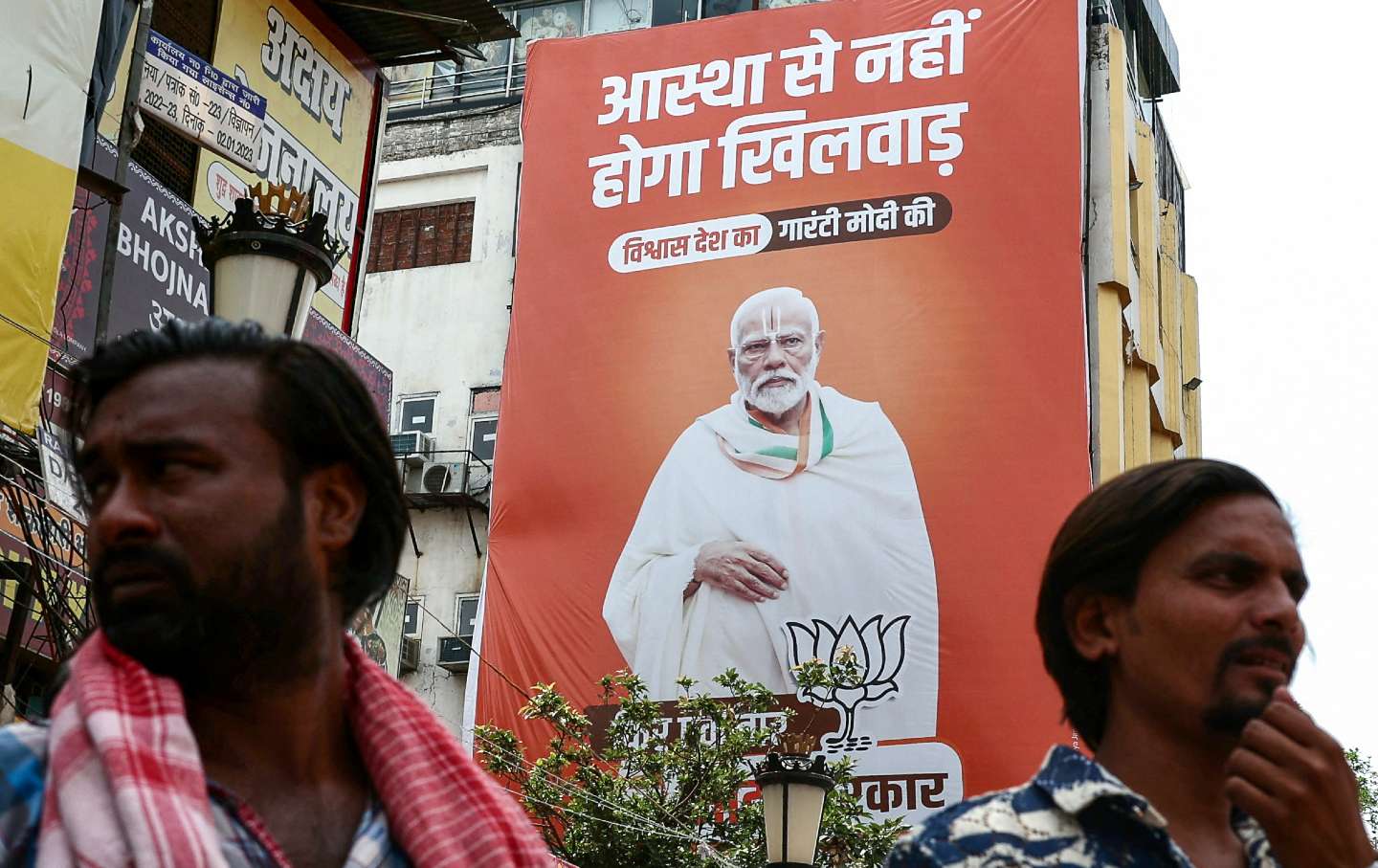
Men stand in front of an election campaign hoarding of the Bharatiya Janata Party featuring Indian Prime Minister Narendra Modi, in Varanasi on April 10, 2024, ahead of India’s upcoming general elections.
(Niharika Kulkarni / AFP via Getty Images)
Narendra Modi’s electoral success in Gujarat between 2001 and 2014 and on the Indian scene since then stems from his novel blend of populism and Hindu nationalism (Hindutva). Hindutva grew out of the Rashtriya Swayamsevak Sangh (National Volunteer Organization, RSS), a paramilitary-style nationalist group founded in 1925 to bulk up young Hindus both physically and morally so they could stand up to Muslims, who were depicted as a danger to the majority.
Modi joined the RSS as a child and devoted his life to it, pursuing no other careers and even living apart from his wife. He rose through the ranks, eventually becoming the chief minister of Gujarat (his home state) in 2001. The following year, he oversaw an anti-Muslim pogrom that left some 2,000 dead— a strategy of religious polarization that won him the December 2002 regional elections. Similar successes in 2007 and 2012 made Modi the obvious prime ministerial candidate for his Bharatiya Janata Party (Indian People’s Party, BJP) in 2014.
But he left behind the RSS tradition of collective decision-making, putting himself front and center and striving to connect directly with “his” people. Rather than relying on the activist network, Modi held rally after rally where he showcased his flair for speechmaking. He also founded his own television channel, worked social media, and employed a revolutionary strategy: using holograms to simultaneously lead one rally in hundreds of places. Modi even distributed masks printed with his likeness to deepen supporters’ identification with him. In short, he saturated the public arena so as to embody the masses—a task made easier by his low-caste origins, on which he has built a complete narrative. (He worked as a teaboy in his father’s shop.)
However, the “masses” meant only the Hindu majority, which he was busy stirring up against one target in particular: Muslims. As in the 2014 elections, in 2019 “Moditva”—Modi’s idiosyncratic hybridization of right-wing nationalist ideology, Hindutva and a personality cult—triumphed on the strength of BJP landslides in the north and west. This success allowed him to bend to his will both the RSS and the BJP—whose MPs had ridden to victory on his coattails—fashioning a government of faithfuls and a parliament of yes-men.
The other institutions soon succumbed too—even the Supreme Court, once a beacon of independence. In the summer of 2014, Modi advanced a constitutional reform that would have changed the appointment process for judges, until then picked by a collegium of peers. His co-optation, opposed by the entire political class, would have replaced the collegium with a five-member commission. The Supreme Court eventually declared the amendment unconstitutional, but Modi still got his way: Of the nominees submitted by the collegium, his government finalized appointments only for those he liked. The court thus resigned itself to proposing candidates who were apt to please him.
Hindutva and its cronies
Society, meanwhile, was undergoing a similar process of enforced conformity, especially in higher education, despite India’s reputation for creativity and intellectual vitality. Public universities were under the thumb of vice-chancellors invariably chosen from among members or supporters of the Hindu nationalist current. Funders (mostly from the business world) of private institutions were pressured, and they in turn pressured the faculty: Industrialists cannot afford to antagonize those in power.
Dozens of subtle maneuvers brought the opposition to its knees. Most often, members of the Indian National Congress or regional parties would be intimidated via tax adjustments or police investigations based on shaky pretexts. The objective? To draw rivals away from their political affiliations and toward the BJP. A valuable catch would sometimes be rewarded with a ministerial position or an easy job. Those who resisted the carrot felt the sting of the stick, typically in the form of charges that could mean prison (the chief minister of Delhi, Arvind Kejriwal, was imprisoned last month) or a freeze on their party’s funds (the case for several Congress party bank accounts since February).
Despite the prime minister’s autocratic tendencies, his government has continued to hold elections. Other similarly disposed countries—think Recep Tayyip Erdoğan’s Turkey or Viktor Orbán’s Hungary—have done likewise. Elections have two major upsides. First, a country can claim to be a democracy (India is the “world’s largest,” according to Western leaders). Second, elections offer a cover of legitimacy to Modi: The people’s mandate justifies weakening all other power centers, especially those that uphold the rule of law. How could the judiciary system defy a leader who embodies the people? Legitimacy wins out over legality.
For Modi, running for reelection is a calculated risk. Regulatory institutions are shadows of their former selves: The electoral commission, which caused many a headache for prime ministers past, has become compliant, as its civil servant leaders face the same pressures as political opponents. For example, although it is illegal to campaign on religious arguments, it would now be unthinkable to punish a BJP leader for doing so.
What’s more, Modi knows he can outspend any rival. BJP expenditures reportedly reached around $3 billion in 2019, equivalent to those of all other parties combined. This financial heft was made possible by a law his government passed in 2017 that keeps donors anonymous through “electoral bonds,” a system declared unconstitutional by the Supreme Court this year, in its most significant challenge to the government since 2015. Even if this system were eliminated, the BJP would still benefit from other private funding channels—not to mention the vast sums the government collects from the public sector to finance its campaigns.
Private-sector money comes primarily from a handful of oligarchs. In exchange for significant advantages, these tycoons help fund the government and back it in the press, which they are slowly taking over. New Delhi Television, the last mainstream TV channel still brave enough to criticize Modi, was acquired in 2022 by Gautam Adani, and some highly popular journalists resigned as it morphed into his mouthpiece. Overall, TV channels and media companies have self-censored to avoid the tax officials and police.
The making of a deeper state
Popular
“swipe left below to view more authors”Swipe →At grassroots level, the Hindu nationalist movement relies on a network of disciplined activists trained by the RSS. As “vigilantes,” they primarily act as a sort of local cultural police, and Muslims are their favorite targets. Muslim men are barred from fraternizing with young Hindu women in public or on campus, in the name of combating “love jihad” (a supposed strategy to seduce them, persuade them to convert to Islam and then marry them). Muslims are sometimes pressured to (re)convert to Hinduism, banned from mixed neighborhoods—causing increased ghettoization—or pursued on highways in the north when they are suspected of transporting a cow (sacred in Hinduism) to the slaughterhouse. This form of vigilantism sometimes leads to lynchings that are filmed and posted on social media.
Guided by the Hindu nationalist movement, these activists work hand in hand with the party-state that the BJP is becoming, to create a deeper state that penetrates society. Vigilantism indeed offers the state unprecedented societal reach: Cultural order is enforced not just by the administration but also by activists who serve as proxies for those in uniform. The only difference is their attire.
Given this transformation of the public sphere, how different would things really be for minorities if the political pendulum were to swing? If elected, the opposition could reverse BJP laws, but what power would it have to keep self-proclaimed defenders of Hinduism from policing the streets? Legitimacy may continue to sideline legality for as long as the Hindu majority remains swayed by the dogmas that the BJP has effectively made mandatory.
Support independent journalism that does not fall in line
Even before February 28, the reasons for Donald Trump’s imploding approval rating were abundantly clear: untrammeled corruption and personal enrichment to the tune of billions of dollars during an affordability crisis, a foreign policy guided only by his own derelict sense of morality, and the deployment of a murderous campaign of occupation, detention, and deportation on American streets.
Now an undeclared, unauthorized, unpopular, and unconstitutional war of aggression against Iran has spread like wildfire through the region and into Europe. A new “forever war”—with an ever-increasing likelihood of American troops on the ground—may very well be upon us.
As we’ve seen over and over, this administration uses lies, misdirection, and attempts to flood the zone to justify its abuses of power at home and abroad. Just as Trump, Marco Rubio, and Pete Hegseth offer erratic and contradictory rationales for the attacks on Iran, the administration is also spreading the lie that the upcoming midterm elections are under threat from noncitizens on voter rolls. When these lies go unchecked, they become the basis for further authoritarian encroachment and war.
In these dark times, independent journalism is uniquely able to uncover the falsehoods that threaten our republic—and civilians around the world—and shine a bright light on the truth.
The Nation’s experienced team of writers, editors, and fact-checkers understands the scale of what we’re up against and the urgency with which we have to act. That’s why we’re publishing critical reporting and analysis of the war on Iran, ICE violence at home, new forms of voter suppression emerging in the courts, and much more.
But this journalism is possible only with your support.
This March, The Nation needs to raise $50,000 to ensure that we have the resources for reporting and analysis that sets the record straight and empowers people of conscience to organize. Will you donate today?
More from The Nation
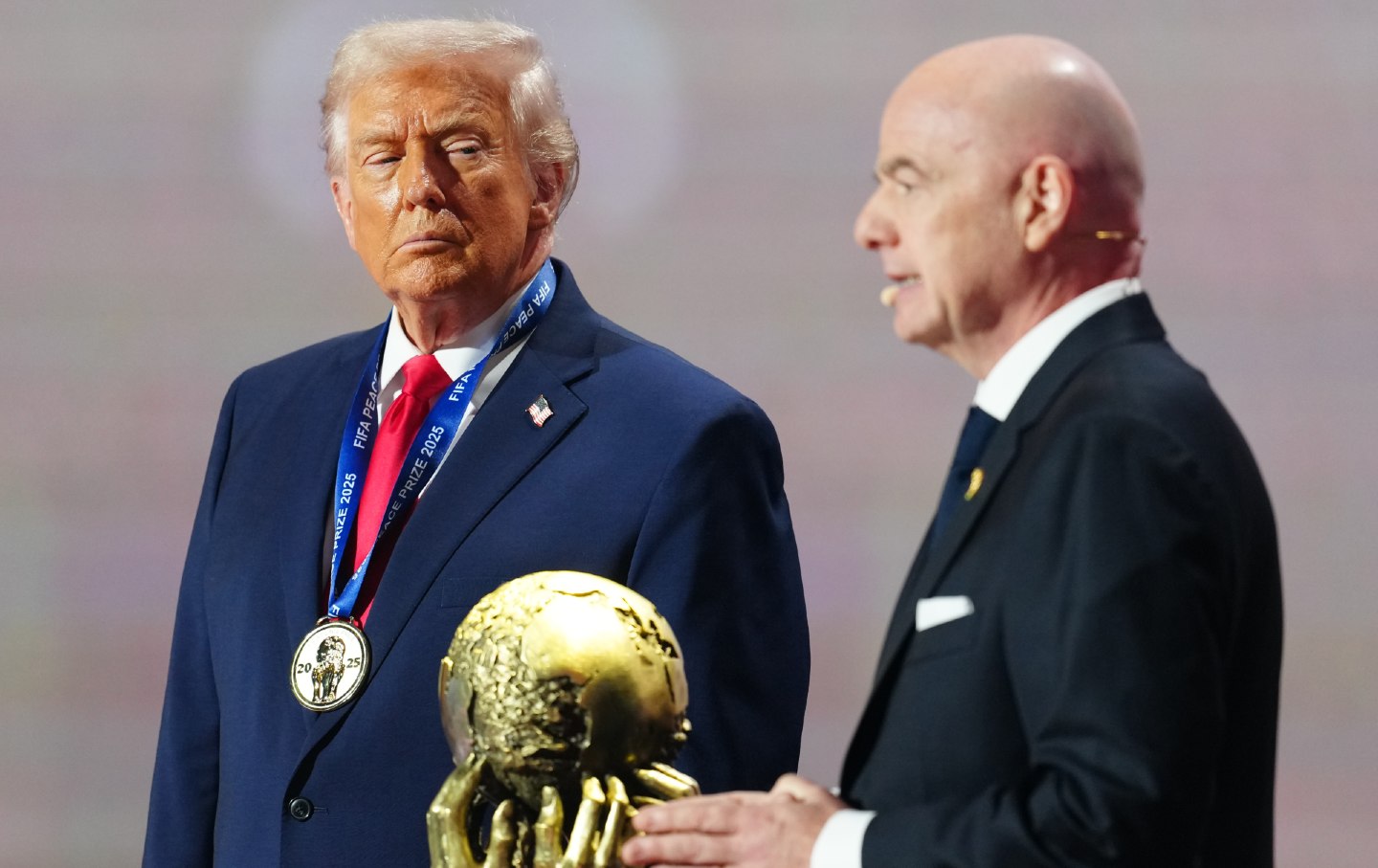
Trump and His Soulless Cronies Have Managed to Suck the Joy Out of the World Cup Trump and His Soulless Cronies Have Managed to Suck the Joy Out of the World Cup
Not even soccer is immune from Trump’s reverse Midas touch.
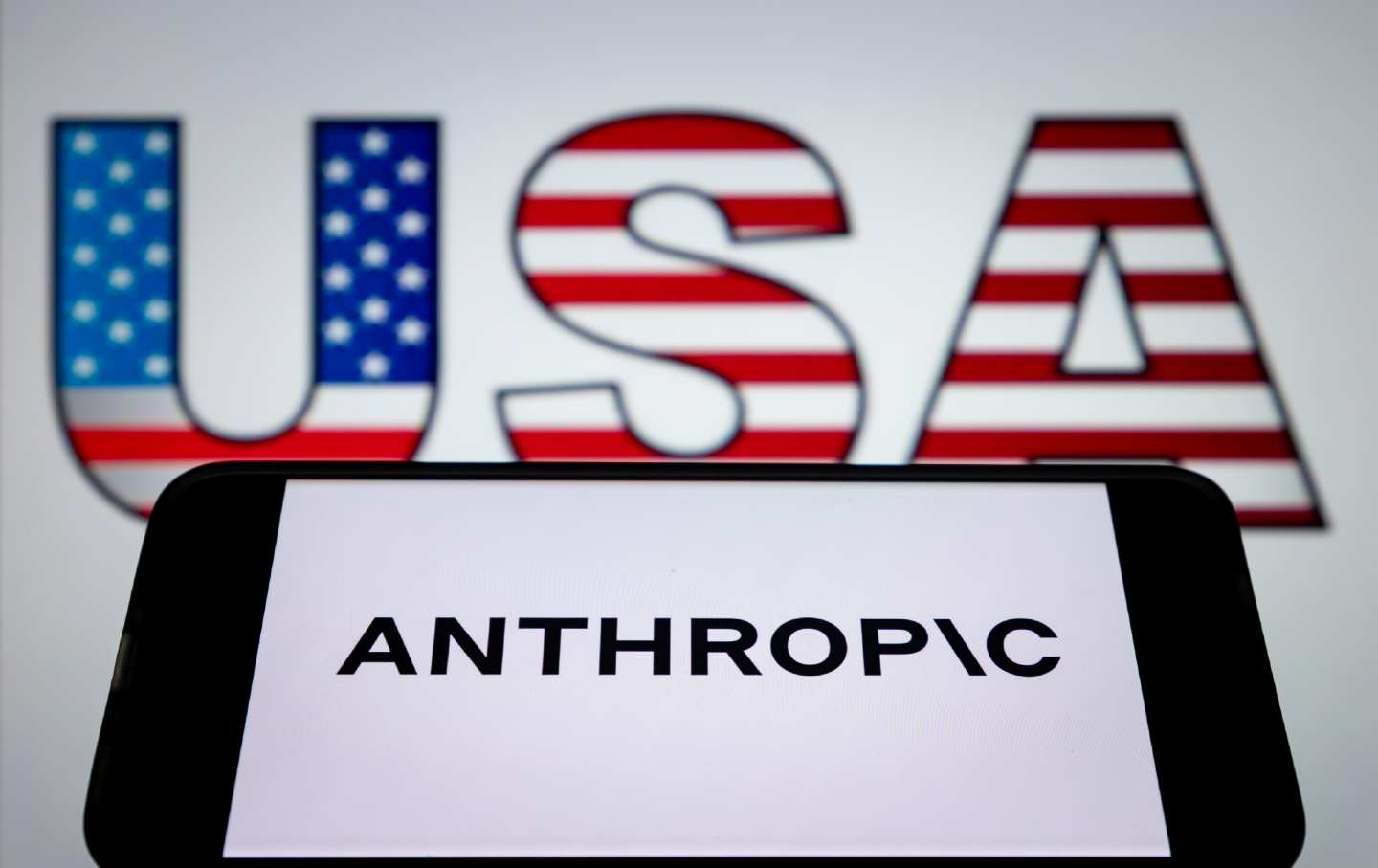
Garbage In, Carnage Out Garbage In, Carnage Out
The harrowing lessons of the Pentagon’s recently dissolved partnership with Anthropic.
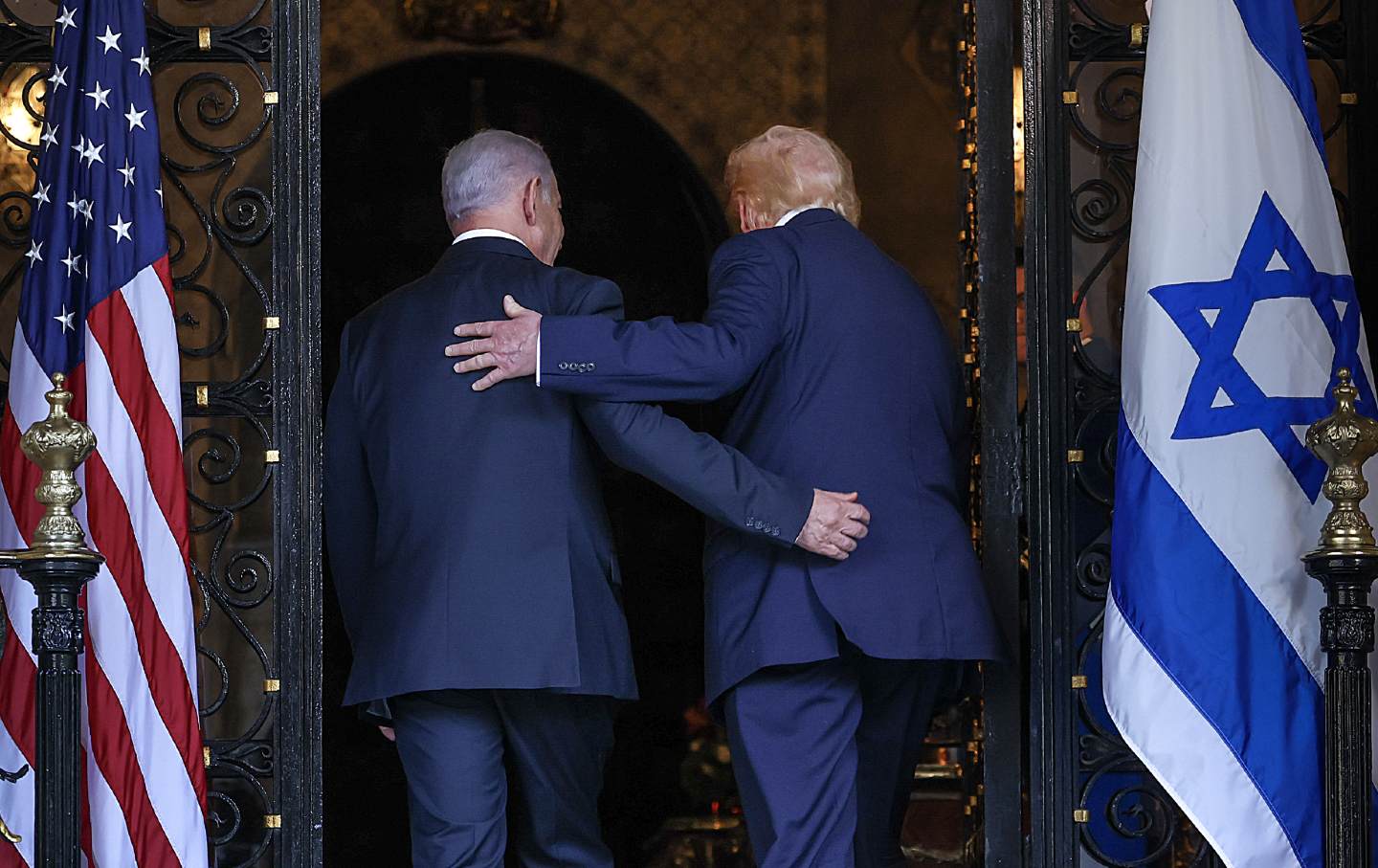
The Iran War Could Be Catastrophic for the US-Israel Alliance. Good. The Iran War Could Be Catastrophic for the US-Israel Alliance. Good.
As Israel’s role in pushing the war with Iran comes into ever sharper focus, it’s up to us to turn outrage into change.
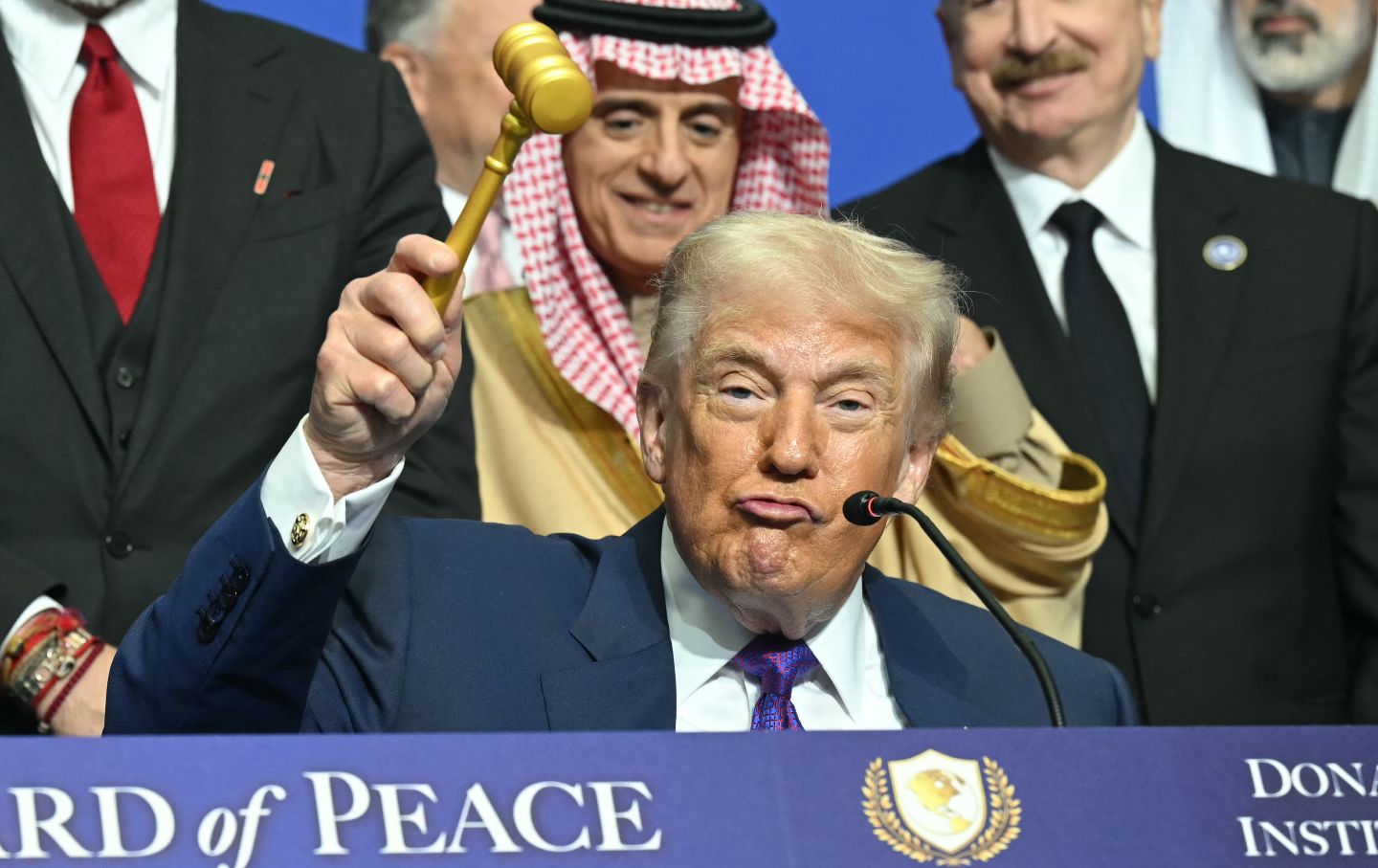
An Unlawful War An Unlawful War
The precedent being set by the US in launching this war of aggression against Iran will long live in infamy.
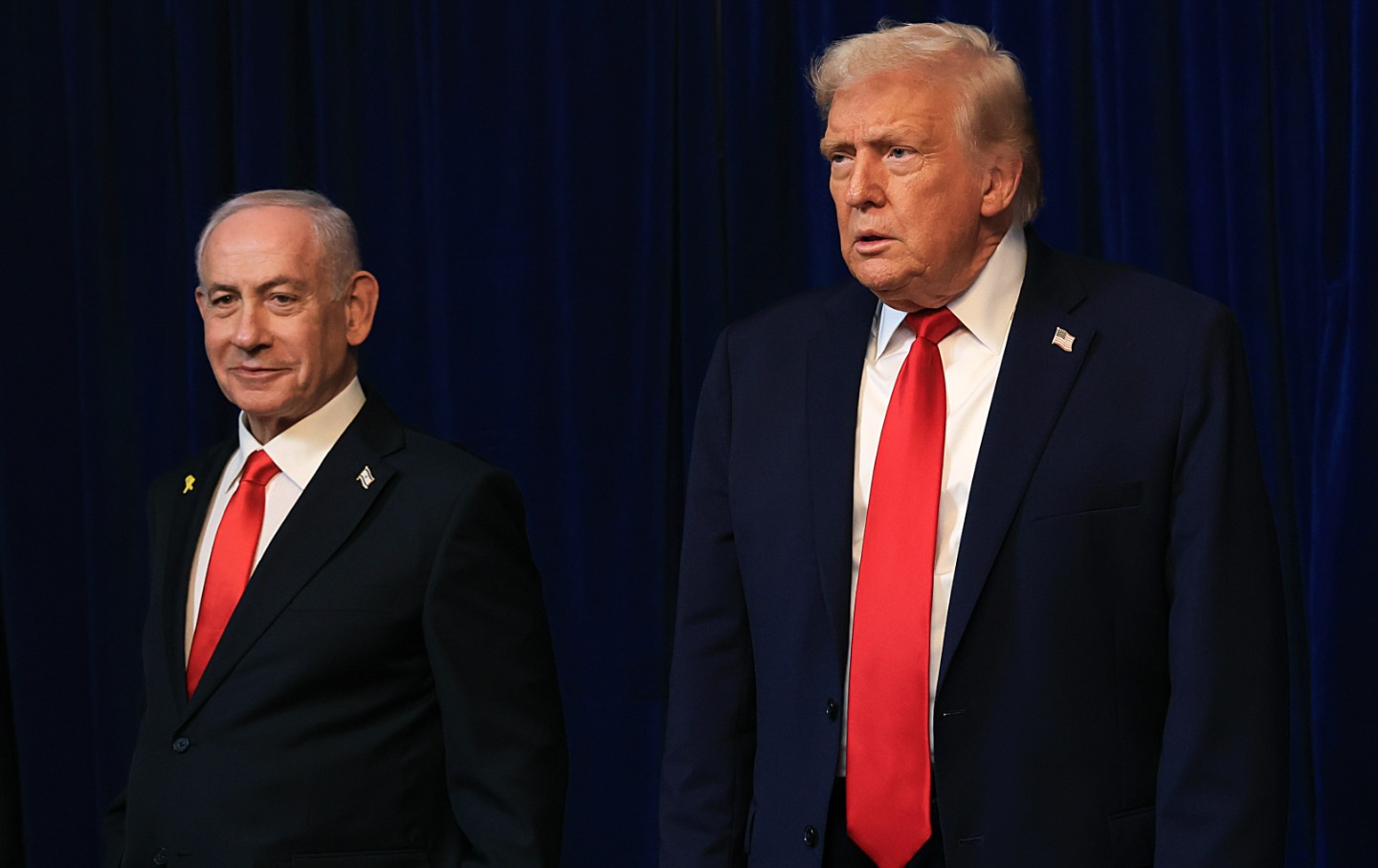
Trump and Netanyahu Want to Turn Iran Into a Failed State Trump and Netanyahu Want to Turn Iran Into a Failed State
This war looks designed to cause maximum chaos and instability. The world will pay a high price.
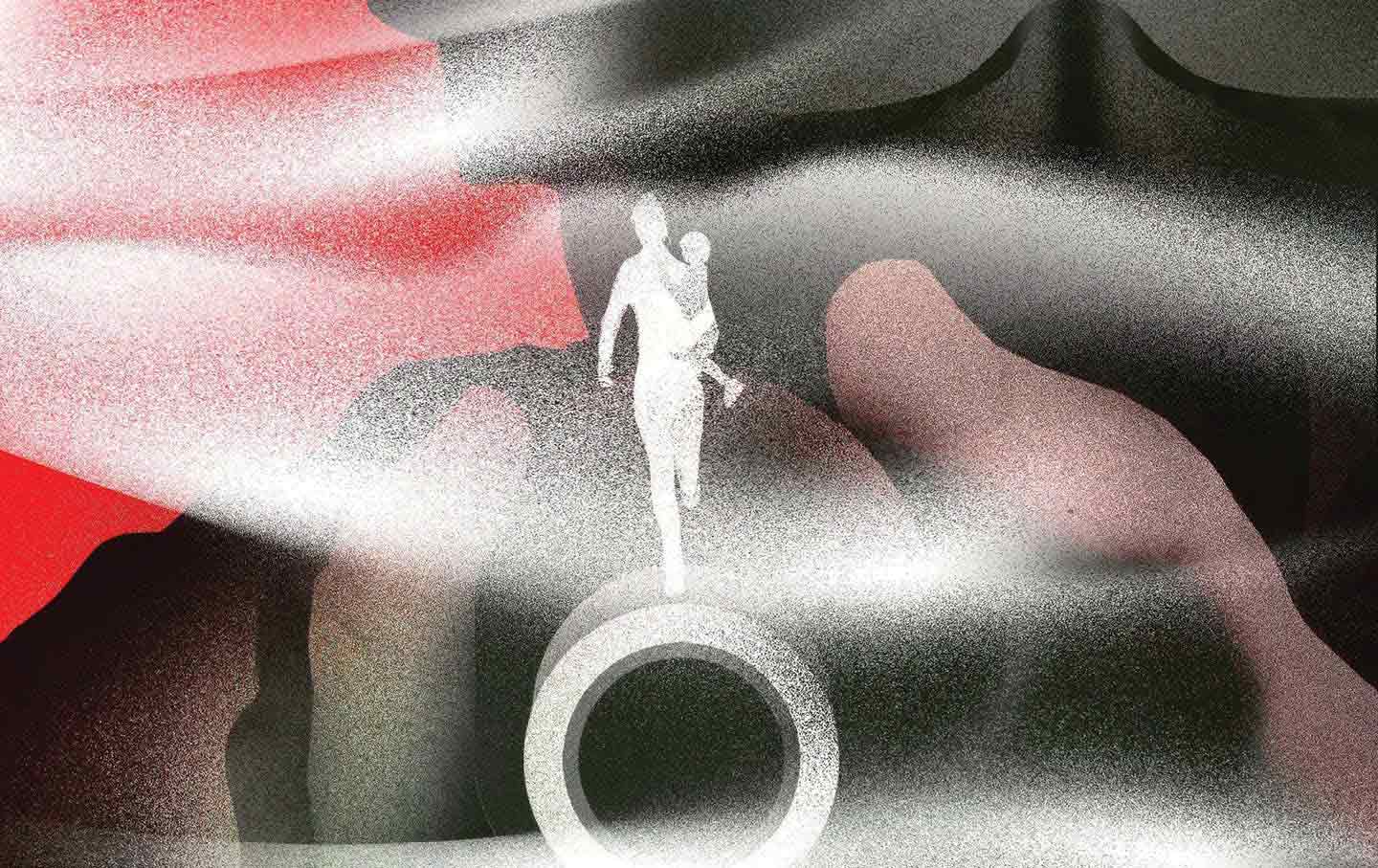
The War on Terror Paved the Way for Trump’s Rise—Now He’s Making It His Own The War on Terror Paved the Way for Trump’s Rise—Now He’s Making It His Own
Only the total abolition of the DHS can restore freedom.


